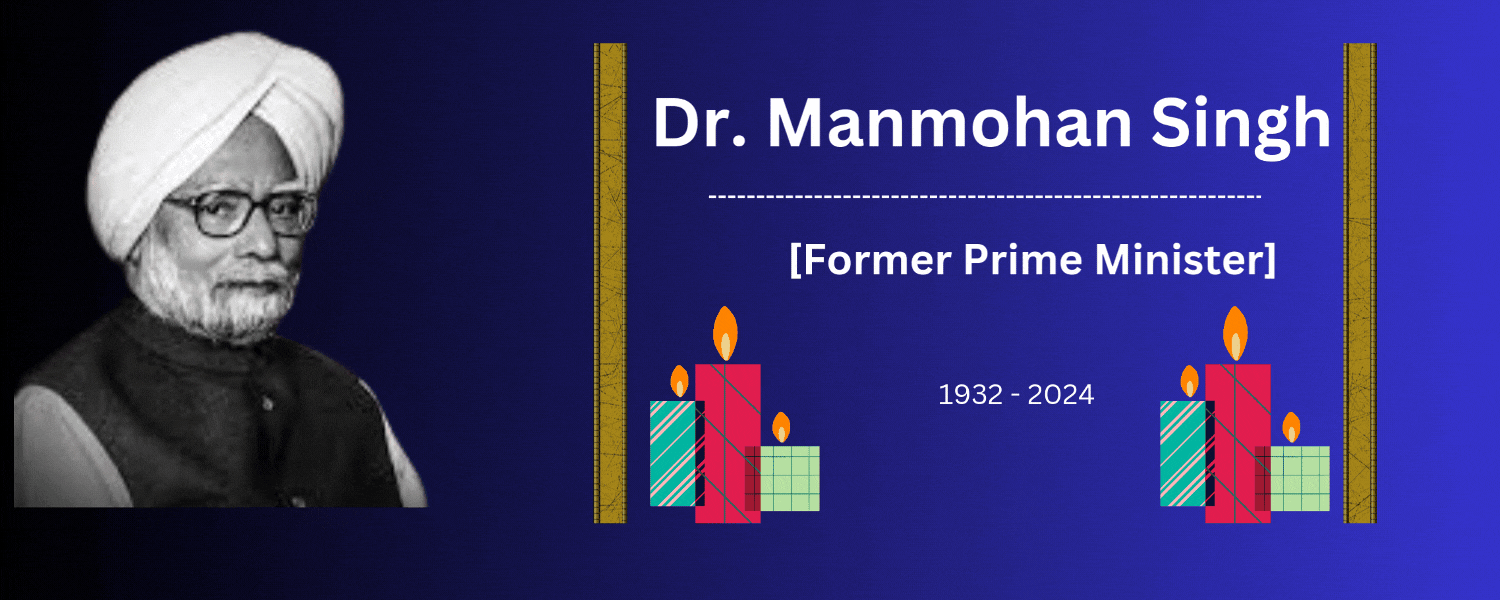Dr. Manmohan Singh: Indias Visionary Leader
Dr. Manmohan Singh, a name synonymous with integrity and visionary leadership, has left an indelible mark on India’s economic and political landscape. Serving as India’s 14th Prime Minister from 2004 to 2014, his tenure was characterized by groundbreaking economic reforms, progressive policies, and steadfast governance. This blog explores his journey, achievements, and lasting impact on the nation.
Early Life and Academic Brilliance
Dr. Manmohan Singh was born on September 26, 1932, in Gah, now in Pakistan. Despite humble beginnings, his academic prowess shone brightly. He earned degrees in Economics from Punjab University, Cambridge University, and later a doctorate from Oxford University. His scholastic achievements laid the foundation for his expertise in economic policy, earning him respect globally as a leading economist.
Singh's dedication to education and hard work enabled him to break barriers, becoming an inspiration for countless students and aspiring leaders worldwide. His intellectual rigor and academic grounding would later shape his approach to policymaking and governance.
The Architect of India’s Economic Liberalization
Dr. Manmohan Singh’s appointment as the Finance Minister in 1991 marked a turning point in India’s economic history. At a time when the nation faced a severe economic crisis, Singh’s vision and pragmatic policies ushered in an era of liberalization, privatization, and globalization.
He dismantled the "License Raj," reduced import tariffs, and encouraged foreign investments, thereby revitalizing India’s stagnant economy. These reforms not only stabilized the economy but also set India on a path of rapid growth, creating millions of jobs and fostering entrepreneurship. Today, his economic reforms are celebrated as a watershed moment in India’s post-independence history.
Tenure as Prime Minister: A Decade of Transformation
Dr. Manmohan Singh’s tenure as Prime Minister witnessed significant milestones in economic growth, social welfare, and foreign policy. Under his leadership, India achieved impressive GDP growth rates, becoming one of the fastest-growing economies globally. His government’s policies, such as the Mahatma Gandhi National Rural Employment Guarantee Act (MGNREGA) and the Right to Information Act, empowered millions and enhanced transparency.
Despite global challenges like the 2008 financial crisis, Singh’s steady leadership ensured economic stability. His commitment to inclusive growth reflected in initiatives that targeted poverty alleviation, rural development, and education. His diplomatic acumen also strengthened India’s ties with major global powers, positioning India as a key player on the world stage.
Vision for a Knowledge-Driven India
A staunch advocate for education and innovation, Dr. Singh emphasized building a knowledge-driven economy. His government’s investments in higher education and research institutions paved the way for advancements in science, technology, and innovation.
Initiatives like the National Skill Development Mission and expansion of educational infrastructure underscored his commitment to empowering the youth. By fostering a culture of learning and innovation, Singh envisioned an India capable of competing globally in fields like information technology, biotechnology, and renewable energy.
Champion of Social Justice and Welfare
Dr. Manmohan Singh’s policies reflected his deep empathy for marginalized communities. Programs like the Food Security Act and the expansion of health and education services targeted the underprivileged, ensuring equitable access to essential resources.
His government’s focus on rural development, infrastructure, and social welfare uplifted millions from poverty. By addressing issues like gender inequality, healthcare access, and rural employment, Singh’s leadership demonstrated his unwavering commitment to creating a fair and just society.
A Humble Leader in the Face of Criticism
Despite his monumental contributions, Dr. Manmohan Singh faced criticism during his tenure, particularly regarding issues of corruption and policy paralysis in his second term. However, his dignified demeanor and unwavering focus on national interest earned him respect even among his detractors.
Singh’s humility and soft-spoken nature often led to underestimation of his political acumen. Yet, his ability to navigate complex challenges with grace and integrity remains a testament to his character and leadership.
The Enduring Legacy of Dr. Manmohan Singh
Dr. Manmohan Singh’s legacy extends beyond his tenure as Prime Minister. His economic reforms continue to drive India’s growth, while his focus on social welfare and education has left a lasting impact on millions. He remains a symbol of honesty, intellect, and dedication to public service.
As India continues to evolve on the global stage, Dr. Singh’s contributions serve as a guiding light for future leaders. His life story—from a village in Punjab to the highest echelons of global politics—is a testament to the power of perseverance, vision, and humility.
Dr. Manmohan Singh
Dr. Manmohan Singh’s journey is an inspiring saga of resilience, intellect, and service to the nation. As a visionary economist, compassionate leader, and humble statesman, he transformed India’s economic and social fabric. His legacy is a reminder of the profound impact that thoughtful leadership and unwavering commitment to the public good can achieve. Today, Dr. Manmohan Singh remains a revered figure, whose contributions continue to inspire and shape India’s destiny.




.png)
Comments
Post a Comment